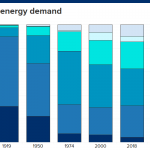Cybersecurity the most crucial aspect that people should think of while going online. However, most Internet users are ignorant of the issues and risks they could come across when they surf the web.
This situation coupled with their inability to recognize what a cybersecurity breach would look like when hackers execute it. Most times, individuals do not care about the hazards brought by an attack.
In a study by the Pew Research Center, the results revealed that Americans have mixed knowledge regarding cybersecurity. Based on the analysis, the average respondent only answered five out of 13 questions about cybersecurity correctly.
The questions centered on various cybersecurity topics. Out of the thirteen aspects, the highest level of awareness reflects on the ability to distinguish strong passwords and knowledge about the false sense of security regarding password-protected Wifi connections. These two categories yielded 75 percent and 73 percent of the total respondents, respectively.
On the other hand, half of the respondents showed their capability in identifying phishing attacks. The same number also said that they are aware that disabling location settings still allow tracking.
The same study also showed that most people are unaware of botnet and VPN. 73 percent of the respondents said that they do not know what felonies hackers could do using a botnet. Meanwhile, 70 percent answered that using VPN lowers the risk of using unprotected networks.
In another study, it showed that most millennials disregard online security threats. Despite society hailing them as the generation of technology, Marble Security shared that young adults are susceptible to hacking.
In the company’s survey, it revealed that 26.2 percent of young adults experienced hacking through their Internet accounts. Risky online behavior aggravates this situation and increases the chances of another breach. Sharing passwords with people outside the family, plugging a flash drive borrowed from someone, and connecting to public Wifi connections are just some of the dangerous acts listed by cybersecurity companies.
As a move to encourage the youth to participate in cybersecurity awareness initiatives, schools decided to integrate the course into their curriculum. Recently, the University of Sydney collaborated with Australia’s banking sector to teach high schoolers about critical cybersecurity skills.
The program, which starts in October, shall cover the year 7 to 10 curriculum about digital technologies. The team shall use challenges to carry about with the lessons. They shall also utilize real-life situations to encourage the students to think critically and prompt them to think from a breacher’s point of view.










